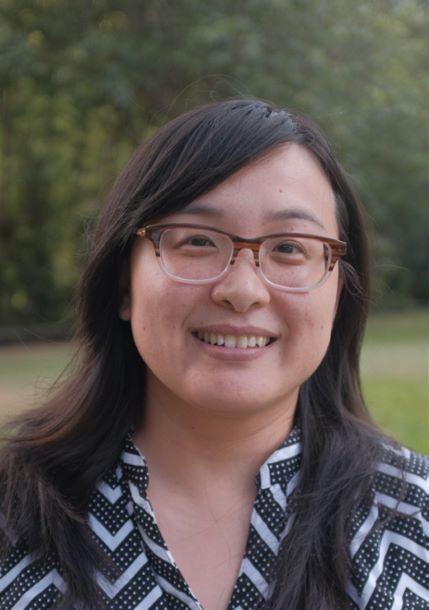Modeling the Evolution of News Event Using Dynamic Knowledge Graphs
Add to Google Calendar
Date: Fri, October 08, 2021
Time: 2:00pm - 3:00pm
Location: online
Speaker: Dr. June Zhang, Assistant Professor, Electrical & Computer Engineering, UH at Mānoa
Sponsored by the Data Science Institute, register at http://go.hawaii.edu/JJq
 Dr. June Zhang is an assistant professor in the Electrical and Computer Engineering department at the University of Hawai'i at Manoa. She received her B.S. with Highest Honor in Electrical and Computer Engineering from the Georgia Institute of Technology and M.S. in Electrical Engineering from Stanford University. She received a Ph.D. in Electrical and Computer Engineering from Carnegie Mellon University in 2015. She also worked as a postdoctoral fellow in the Division of Viral Hepatitis at CDC (Centers for Disease Control and Prevention). Her research interests are in network science, graph signal processing, and complex dynamical systems such as the spread of epidemics and information.
Dr. June Zhang is an assistant professor in the Electrical and Computer Engineering department at the University of Hawai'i at Manoa. She received her B.S. with Highest Honor in Electrical and Computer Engineering from the Georgia Institute of Technology and M.S. in Electrical Engineering from Stanford University. She received a Ph.D. in Electrical and Computer Engineering from Carnegie Mellon University in 2015. She also worked as a postdoctoral fellow in the Division of Viral Hepatitis at CDC (Centers for Disease Control and Prevention). Her research interests are in network science, graph signal processing, and complex dynamical systems such as the spread of epidemics and information.
Date: Fri, October 08, 2021
Time: 2:00pm - 3:00pm
Location: online
Speaker: Dr. June Zhang, Assistant Professor, Electrical & Computer Engineering, UH at Mānoa
Sponsored by the Data Science Institute, register at http://go.hawaii.edu/JJq
Recently, there has been a lot of research interest in social media and its roles in facilitating the spread of misinformation. Much less attention has been paid to traditional news media outlets.
In this talk, we will discuss the challenges of collecting and cleaning the dataset and describe our ongoing effort in modeling how news coverage of events changes over time. This is a highly challenging problem due to the ambiguous nature of language and the size of the dataset.
We convert the text from articles published each day into a knowledge graph. A knowledge graph is a directed multigraph to encode object-> relationship -> object phrases found in the text; the graph structure and the associated values on the nodes and edges capture basic semantic information from the text. Consequently, the corpus of articles collected over time can be represented by a sequence of dynamic knowledge graphs.
Modeling dynamics graphs is an open research area in network science. Due to the size of the knowledge graphs, instead of modeling the changing graph structure directly, we model the dynamics of structural features using the Hawkes process. We present some dynamic differences between articles from well-known news sources such as CNN and BBC vs. news articles from internet blogs.
Bio:
 Dr. June Zhang is an assistant professor in the Electrical and Computer Engineering department at the University of Hawai'i at Manoa. She received her B.S. with Highest Honor in Electrical and Computer Engineering from the Georgia Institute of Technology and M.S. in Electrical Engineering from Stanford University. She received a Ph.D. in Electrical and Computer Engineering from Carnegie Mellon University in 2015. She also worked as a postdoctoral fellow in the Division of Viral Hepatitis at CDC (Centers for Disease Control and Prevention). Her research interests are in network science, graph signal processing, and complex dynamical systems such as the spread of epidemics and information.
Dr. June Zhang is an assistant professor in the Electrical and Computer Engineering department at the University of Hawai'i at Manoa. She received her B.S. with Highest Honor in Electrical and Computer Engineering from the Georgia Institute of Technology and M.S. in Electrical Engineering from Stanford University. She received a Ph.D. in Electrical and Computer Engineering from Carnegie Mellon University in 2015. She also worked as a postdoctoral fellow in the Division of Viral Hepatitis at CDC (Centers for Disease Control and Prevention). Her research interests are in network science, graph signal processing, and complex dynamical systems such as the spread of epidemics and information.